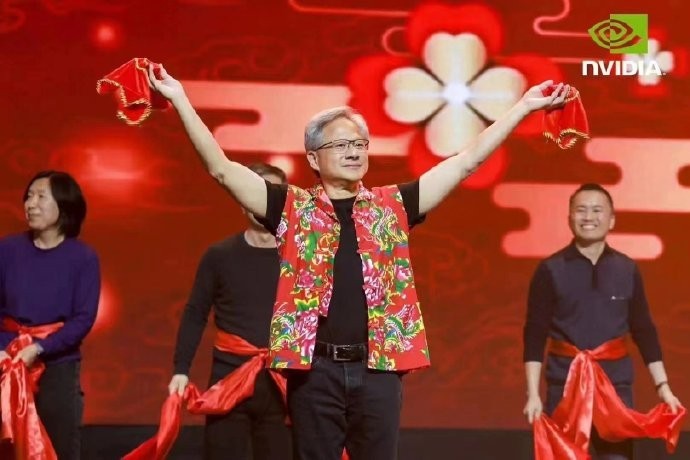The dynamics between politics and technology have taken an interesting turn with the Trump administration’s recent decision to halt sanctions on Nvidia’s H20 chips, a move seen as pivotal for both American tech and Chinese markets. The decision was influenced by a high-profile dinner at Mar-a-Lago attended by Nvidia CEO Jensen Huang, marking a significant moment in the ongoing debate about AI technology and its global implications.
The Importance of Nvidia’s H20 Chips
The H20 chip, recognized as one of the most advanced AI chips available for export to China, has become a focal point in the U.S.-China technology rivalry. Designed specifically to meet export regulations while still remaining highly effective, these chips have found their way into critical applications, particularly in AI domains. As leading Chinese firms stockpiled H20 chips, Nvidia’s significance in the global technology supply chain became increasingly apparent.
According to reports, industry insiders anticipated the U.S. government would impose restrictive measures on Nvidia’s H20 chips due to national security concerns. However, following recent negotiations, these anticipated sanctions were unexpectedly shelved. This alteration in the administration’s stance reflects broader strategic interests.
A Dinner with Far-Reaching Implications
The pivotal moment came during a $1 million-per-plate dinner at Mar-a-Lago, where Jensen Huang met with President Trump. Sources indicate that Huang’s discussions focused not only on Nvidia’s technological innovations but also on potential investments in American AI data centers. Such commitments likely played a crucial role in swaying the administration’s perspective on H20 chip regulations.
In the wake of the dinner, government sources revealed that discussed sanctions, which were ready to be executed imminently, were put on hold. The implications of this decision stretch beyond merely export controls – they signal a shift in the regulatory landscape around AI technology and international trade.
- Investment in American AI data centers as a bargaining chip.
- Pressure from lawmakers for stricter chip export controls.
- Critical reliance of China on Nvidia’s advanced chips.
Political Pressure and Strategic Investments
As discussions regarding technological governance intensify, the Trump administration has faced immense pressure from lawmakers to impose stricter controls on American technology exports to China. Figures such as Senators Elizabeth Warren and Josh Hawley have been at the forefront of the campaign for enhanced export embargoes, fearing that advanced AI technologies could bolster China’s military capabilities.
The administration’s decision to backtrack on H20 chip regulations, however, highlights a nuanced balancing act — a desire for tighter security measures tempered by the need for investment and economic interests. By prioritizing domestic investments from Nvidia, the Trump administration aims not only to safeguard national security but also to bolster American tech jobs and infrastructure.
Market Reaction and Nvidia’s Performance
The repercussions of this decision were immediately felt in the stock market. Nvidia’s shares seen phenomena just weeks earlier, experiencing a significant decline in market value as speculation grew around potential sanctions. However, the lifting of fears regarding the H20 chips’ sale to China contributed to a rebound in stock prices, reflecting investor confidence in Nvidia’s future prospects.
This boost underscores the critical role Nvidia’s H20 chips play in the broader context of international AI development. With robust demand from China, the resilience of the tech giant reflects shifting geopolitical dynamics that intertwine investment strategies and technological advancement.
Global Competition: The Race for AI Supremacy
As the world’s two largest economies navigate the complex interplay of trade and technology, the competition for AI supremacy remains fierce. The news that the Trump administration opted to spare Nvidia’s H20 chips underscores the critical nature of semiconductors in the race for technological innovation.
China has been intensely focused on narrowing the technological gap with the West, making investments in domestic chip production and AI ventures. However, as industry experts point out, the country remains at a disadvantage in the chip technology sphere, with homegrown manufacturers lagging behind Western giants such as Nvidia and AMD.
Looking Ahead: Future of Nvidia and Trade Policies
The future of Nvidia’s business dealings with China hinges on both market demands and government policies. As AI technology continues to evolve and expand in various sectors, Nvidia’s strategic decisions alongside regulatory frameworks will shape its growth trajectory. The administration’s unexpected reversal on H20 chips lays the groundwork for further discussions regarding the interplay between security measures and economic viability.
Conclusion: The Intersection of Technology and Governance
This recent shift in policy not only illustrates the evolving nature of U.S.-China relations but also illustrates the intricate relationship between technological advancement and governance. As both nations pursue leadership in AI, the choices made today will have consequences for years to come. Nvidia’s H20 chips continue to serve as a symbolic and practical battleground for broader issues at stake in modern geopolitics.
By navigating this complex landscape of innovation, investment, and regulation, stakeholders on all sides must remain vigilant as they adapt to the fast-changing dynamics of global technology markets.

